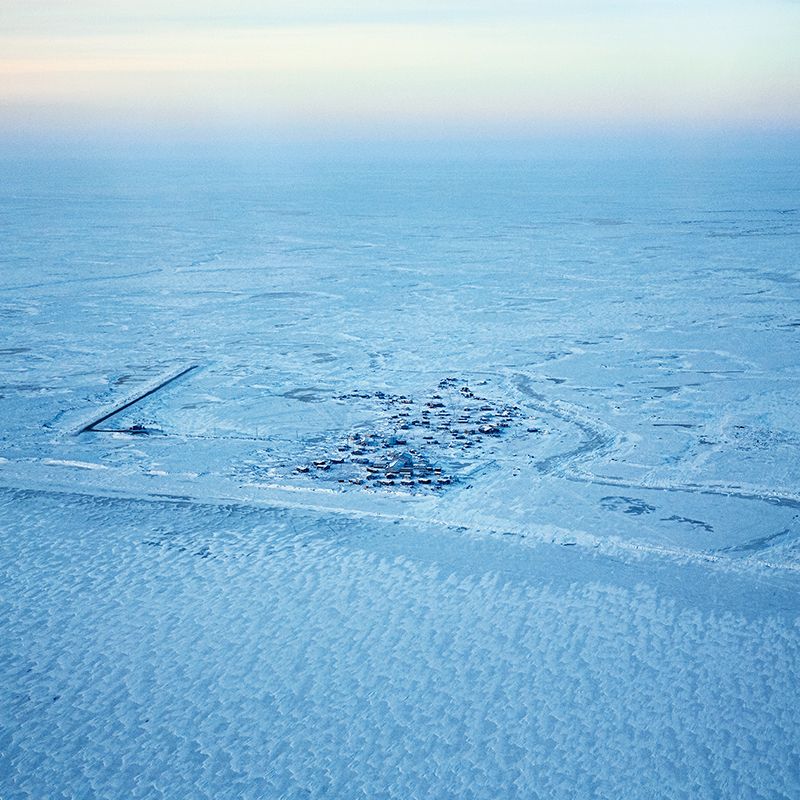I had tripped over a baby gate while unpacking boxes, breaking both feet and eliminating my ability to climb the stairs to our new bedroom. I was lying on an inflatable mattress in our new living room when I saw a tick casually walking across the quilt. Slowly. Smugly. Like it deserved to be there. It was the fourth one I’d found inside our house since we’d moved, including the one I’d recently pulled from my toddler’s scalp, and it was the last straw.
I lost it. “Why did we move here?” I sobbed to my best friend over the phone. I texted my new neighbor and asked if she’d ever had this problem. “That’s nothing,” she deadpanned. “Have you met any of the big black snakes we get up here yet? Those are FUN.” Oh god, I thought. What have I done?
We’ve been here five months now, my husband, son, beagle, and me. “Here” is a tiny rural town, a world away from the crowded New Jersey suburb we previously called home. Our old town in Jersey had a strip mall every few miles, houses so close you could practically high-five the neighbors from your front porch, and abundant excitement when a convenience-store chain came to town. It was storybook friendly, with a wonderful community of fellow parents with toddlers. For the first time in our adult lives, we were starting to feel settled.
And then, out of nowhere, our sense of stability disappeared. The onset of the pandemic was bad enough, but then, in September 2020, my dad had a stroke. A retired surgeon, he’d spent his whole life fixing patients, but suddenly he was the one needing assistance, and his frustration was palpable. My mom couldn’t do everything herself, and there was only so much help we could provide from afar, so we decided to Panic Move to be closer to them. The process took eight months—we had to endlessly debate whether to give up our lives, then sell our house and buy another—but I still wasn’t prepared for how much my world would be upended.
“Everyone else in this tiny village nestled on the banks of the Hudson River seemed perfectly suited for this serene, bucolic life, but I was flailing, fruitlessly searching for familiar ground.”
All of a sudden, we lived in a place where we knew no one, a place that looked like it was sponsored by polar fleece, rugged crossover vehicles, and oat milk. The Mountain Life™ felt like it was going to kill me. Everyone else in this tiny village nestled on the banks of the Hudson River seemed perfectly suited for this serene, bucolic life, but I was flailing, fruitlessly searching for familiar ground. The town’s online forum was home to questions like “Has anyone seen our Golden Polish Hen? Hope the bears didn’t get her…” I spent hours trying to learn everything I could about what I call the Trifecta of Home Ownership Headaches (oil tank, septic field, well water).
Nothing makes you question your life decisions more than breaking both feet, one so badly it required a hardware store’s worth of metal parts to surgically rebuild. Instead of focusing on my dad’s continued recovery, my family was forced to help with mine, caring for my active two-year-old, unpacking the house, and hoisting me up to pee or wash my hair. Combined with the culture shock and stress of moving, my physical setback felt like being handed a 50-pound rock when I was already drowning.
U.S. search interest for family caregivers in 2021 reached the highest level in over a decade.
But shattered bones heal, brains repair themselves, and my dad and I are both doing our best to claw our way to whatever version of normal we can muster. He still doesn’t have much short-term memory, and I still haven’t acclimated to evicting bats and killing spiders on a daily basis. At least we’re trying, though. He can talk, walk, eat, and get dressed independently. And I’ve begun exploring nature trails, a children’s park, the bookstore I’d been eyeing, and my local cheese shop. (Priorities!) The whole hiking and kayaking thing will have to wait until next year, and I’m in no hurry to encounter more local wildlife, but the human inhabitants have been generous and welcoming at every turn.
I still miss many things from my suburban life—grocery delivery, porch hangs with dear friends, and a life without constant texting with an exterminator—but I’m finding new things that bring me joy. At the moment, I’m grateful for sweeping mountain and river views, kind gestures from new neighbors, and being able to walk to several vibrant farmers markets. Patience has never been my strong suit, so I’m oddly thankful that life forced me to slow down, then stop altogether. Though I’m not eager to repeat the events of the past year, my newly rebuilt feet are now planted on solid ground.


